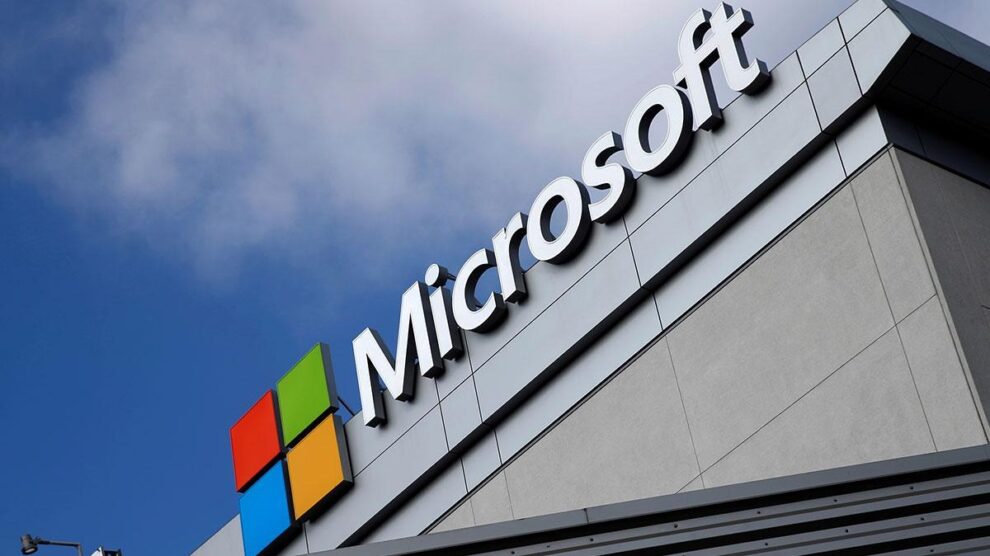Microsoft and Task Systems are revolutionizing business operations by co-piloting efficiency with advanced artificial intelligence. This partnership signifies a pivotal moment in the corporate world, as businesses increasingly rely on AI to streamline operations, optimize productivity, and enhance decision-making. The initiative combines Microsoft’s robust AI capabilities with Task Systems’ expertise in business solutions, creating an environment where technology and innovation merge to redefine efficiency.

Artificial intelligence has transitioned from being a futuristic concept to a tangible force driving real-world applications. With the advent of tools designed to address specific business challenges, companies are finding new ways to reduce operational bottlenecks, improve communication, and drive measurable outcomes. Microsoft, a global leader in AI technology, has brought its expansive suite of solutions, including Azure OpenAI Service, to this collaboration. These tools, when integrated with Task Systems’ tailored business strategies, offer enterprises scalable, efficient, and adaptable systems that cater to the complexities of modern operations.
The central focus of this partnership is to empower businesses with AI-driven co-pilots capable of automating repetitive tasks, improving workflow accuracy, and fostering an environment of innovation. Whether it’s resource management, data analysis, or customer engagement, these co-pilots bring significant improvements in operational speed and accuracy. This collaboration addresses the growing need for companies to stay competitive in a rapidly evolving market by leveraging AI to perform tasks that were once cumbersome and resource-intensive.
The integration of AI co-pilots into business workflows marks a significant leap in how enterprises approach daily operations. Workflow automation, powered by intelligent systems, eliminates redundancies and ensures that resources are directed toward higher-value activities. For instance, routine processes such as scheduling, data entry, and customer follow-ups are now seamlessly managed through AI tools that require minimal human intervention.
Microsoft’s AI solutions, including its co-pilot functionality, focus on adaptability and user-friendliness. These systems are designed to understand context, predict needs, and execute tasks with precision. By integrating with Task Systems’ customized business frameworks, companies can enjoy bespoke automation that aligns with their unique operational goals. This blend of adaptability and precision underscores the potential of AI as a transformative tool for workflow optimization.
The practical applications of these technologies are vast. Businesses leveraging co-pilots have reported improved turnaround times, enhanced decision-making, and a reduction in operational costs. For example, AI-powered scheduling systems analyze employee availability, workload, and priorities to create optimized schedules without requiring managerial oversight. Similarly, automated data analysis tools process large volumes of information, extracting actionable insights that drive strategic decisions.
Enhancing Collaboration Through Intelligent Tools
One of the standout features of Microsoft and Task Systems’ partnership is the focus on enhancing collaboration through intelligent tools. In a business environment where team coordination is critical, AI-driven systems facilitate seamless communication, task delegation, and progress tracking. These tools serve as intermediaries, bridging gaps in communication and ensuring that everyone involved in a project has access to the information they need.
Collaboration platforms powered by AI are designed to foster inclusivity and productivity. By integrating features such as real-time language translation, predictive task assignments, and personalized notifications, these platforms cater to diverse teams operating across geographies. The result is a unified workspace where tasks are completed efficiently, and accountability is maintained.
Furthermore, these intelligent tools extend beyond internal collaboration. Businesses can use them to enhance client interactions, providing timely updates and personalized experiences. AI-driven customer relationship management systems analyze client preferences, predict needs, and suggest actions that strengthen customer engagement. This dual functionality, catering to both internal and external stakeholders, amplifies the value proposition of Microsoft and Task Systems’ offerings.
AI-Driven Decision-Making
Another critical aspect of this collaboration is its emphasis on AI-driven decision-making. In today’s data-centric world, the ability to make informed decisions quickly is a competitive advantage. Microsoft’s AI solutions are equipped with advanced analytics capabilities, transforming raw data into meaningful insights. These tools enable businesses to identify trends, forecast outcomes, and devise strategies with greater accuracy and confidence.
Task Systems plays a crucial role in contextualizing these insights, ensuring they align with the company’s operational goals. This synergy between data analytics and strategic planning helps businesses navigate challenges and seize opportunities with precision. For instance, predictive analytics tools can identify potential supply chain disruptions, allowing companies to take proactive measures to mitigate risks. Similarly, customer behavior analysis tools enable marketers to design targeted campaigns that resonate with their audience.
The economic and operational benefits of integrating AI co-pilots into business processes are substantial. By automating tasks, businesses reduce their reliance on manual labor, which translates into cost savings. Additionally, the accuracy and efficiency of AI systems minimize errors, reducing waste and ensuring optimal resource utilization.
Microsoft and Task Systems’ focus on scalability ensures that businesses of all sizes can benefit from these technologies. Startups and small enterprises, which often operate with limited resources, can leverage AI tools to compete with larger players. Meanwhile, established corporations can use these systems to streamline complex operations and maintain their competitive edge.
Key Benefits of AI-Powered Co-Pilots
| Benefit | Description | Impact |
|---|---|---|
| Automation | Automates repetitive tasks, reducing the need for manual intervention. | Increases efficiency and allows employees to focus on higher-value activities. |
| Accuracy | Enhances precision in processes such as data analysis, scheduling, and reporting. | Minimizes errors and ensures reliable outcomes. |
| Scalability | Adapts to the needs of businesses of all sizes. | Offers cost-effective solutions for startups and robust systems for large corporations. |
| Collaboration | Facilitates seamless communication and coordination within teams and with clients. | Improves productivity and fosters better relationships with stakeholders. |
| Predictive Analytics | Provides insights and forecasts based on historical and real-time data. | Supports informed decision-making and strategic planning. |
While the benefits are significant, implementing AI co-pilots is not without challenges. Businesses must invest in infrastructure, training, and cybersecurity to ensure seamless integration and operation. Additionally, ethical considerations surrounding data usage and algorithmic bias must be addressed to maintain trust and compliance.
Microsoft and Task Systems are actively working to overcome these challenges by providing comprehensive support to their clients. From initial consultations to ongoing maintenance, the partnership ensures that businesses can harness the full potential of AI without compromising security or ethical standards.
Microsoft and Task Systems’ co-pilot initiative represents a monumental shift in how businesses operate, highlighting the transformative power of artificial intelligence. By combining automation, collaboration, and analytics, these AI-powered tools offer unprecedented opportunities for efficiency and growth. As you navigate the evolving business landscape, the integration of such innovative solutions will undoubtedly redefine your approach to operations, collaboration, and decision-making. With Microsoft and Task Systems at the forefront, the future of business efficiency is not only promising but also attainable.










Add Comment